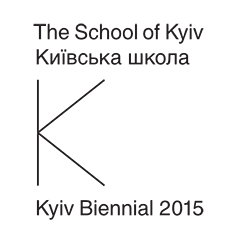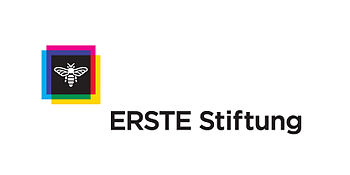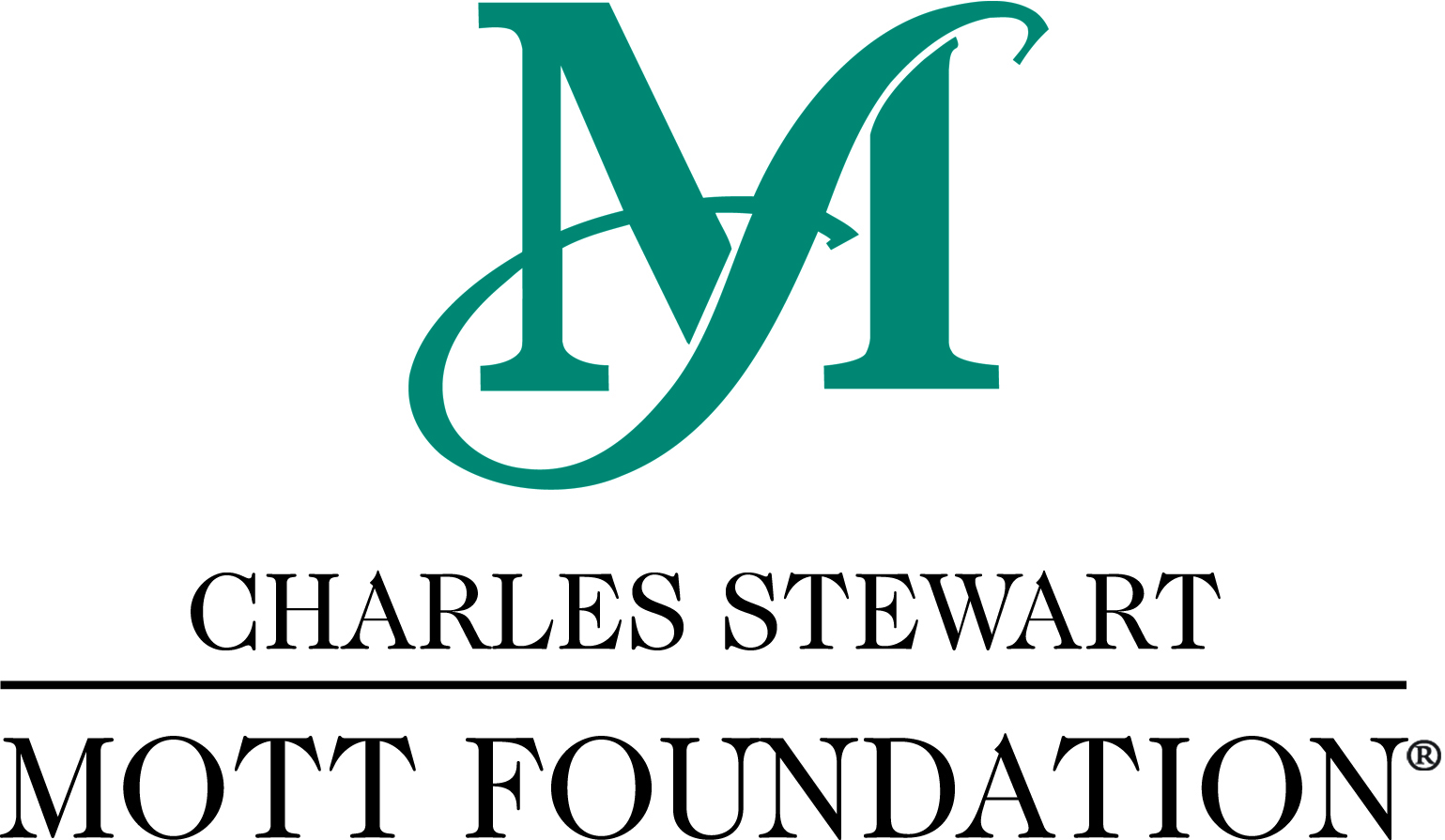The Kyiv International – Kyiv Biennial 2017 Program, Week 2
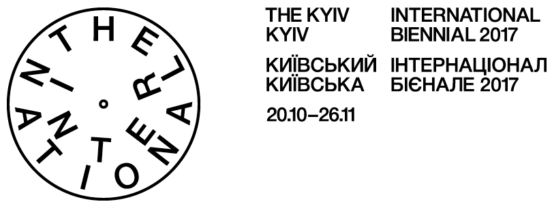
November 1–5, Wednesday – Sunday
On Wednesday, November 1, at 19:00 there will be a discussion, “Krytyka Polityczna Athens” by Katja Ehrhardt (AthenSYN) and Joulia Strauss (Avtonomi Akadimia) (Greece/Germany). Katja Ehrhardt will present her artistic research project entitled, “Universitas,” which is an educational model for a community of teachers and learners that transcends national and sociopolitical borders. Artists from Syria, Greece, and Germany came together with Athenians and migrants in workshops in Athens’ refugee camps and the venues of the Athens Biennale. The project poses the following question: What can we all learn from the refugee “crisis”? Joulia Strauss will present her project Avtonomi Akadimia and share her experience of the transformation of the educational system of Europe, presenting educational formats and practices as the next step in furthering activist art.
At 20:00, the artist Marta Madej (Poland/Germany) will present “In Memoriam Zygmunt Bauman,” in honor of the famous sociologist and philosopher Zygmunt Bauman (1925-2017), who passed away this year.
On Thursday, November 2, at 19:00 there will be a screening of the film “In Spring” (1929) by Mikhail Kaufman within the “Ukrainian Revolutionary Cinema Avant-Garde Series.”
On Friday, November 3, at 17:00 the artist and director Helmut Batista (Brazil) will give a talk entitled, “Deep Hanging Out” in which he will discuss CAPACETE – a program he founded in Rio de Janeiro in 1998 that includes an annual residency, seminar, publications, bookstore and much more.
At 19:00 there will be the “Acoustic Weapons: From the Walls of Jericho to the GitMo Playlist,” a performance by sound artist Sebastian Bayse Schäfer (Germany) featuring audio and video material in its most sinister forms, raising the question: Can sound actually kill someone?
On Saturday, November 4, at 16:00 in “Dread Nought! Fear not – in the Age of Anxiety” artists Judith Holzer & Marcel Schobel (Germany) will discuss their open Book Project in which they are collecting and sampling texts and images from various sources in order to formulate a new language.
At 19:00 the philosopher and cultural theorist Mikhail Ryklin (Germany) will deliver a lecture, “The Fiasco of World Revolution,” based on his latest book Doomed Icarus: Red October from a Family Perspective (2017), written ahead of the centennial of the October Revolution. In his book and lecture, Mykhail Ryklin explores how this event has influenced his family’s history. The author’s grand-uncle, Nikolai Chaplin, was one of the leaders of the Communist Youth League in 1924-1928, when the October Revolution was seen as nothing more than the first step towards a world revolution. After their hopes collapsed, Nikolai and his friends (Lazar Shatskin, Beso Lominadze, Alexander Kosarev) became victims of the Great Terror. The author’s grandfather, Sergei Chaplin, was a Soviet intelligence officer and was arrested in the case against his older brother. He served time in Leningrad’s Kresty Prison and Kolyma mine labor camp before his execution.
On Sunday, November 5, the artists and founders of the “Pirate Cinema” anti-copyright movement Jan Gerber and Sebastian Lütgert (Germany) will deliver the talk, “Pirate Cinema and New Forms of Action Against Politics and Art,” and three screenings:
14:00 Revolution 1 (French): Chris Marker, Gaspard Glanz, Ute Holl, Peter Ott, et al.
17:00 Revolution 2 (October): Kira Muratova, Peter Cherkasky, Artavazd Peleshian, Ken Jacobs, et al.
20:00 Revolution 3 (Digital): Dzyga Vertov, Alfred Hitchcock, Jean-Luc Godard, Philippe Grandrieux, et al.
Organized by Visual Culture Research Center (Kyiv, Ukraine).
Institutional Partners: Avtonomi Akadimia (Athens, Greece), BURSA Gallery (Kyiv, Ukraine), Columbia Global Centers | Paris (France), DAAD Artists-in-Berlin Program (Berlin, Germany), De Balie (Amsterdam, the Netherlands), Depo (Istanbul, Turkey), Depot (Vienna, Austria), documenta 14 (Athens/Kassel, Greece/Germany), European Alternatives (Paris, France), Forum Transregionale Studien (Berlin, Germany), Hromadske TV (Kyiv, Ukraine), Institute for Human Sciences (Vienna, Austria), Medusa Books (Kyiv, Ukraine), National Oleksandr Dovzhenko Center (Kyiv, Ukraine), Political Critique (Warsaw, Poland), Shedhalle (Zurich, Switzerland), Studio 14 (Athens, Greece), Transeuropa Festival 2017 (Madrid, Spain), tranzit.cz (Prague, Czech Republic).
Partners: British Council / Delegation of the European Union to Ukraine, Charles Stewart Mott Foundation, ERSTE Foundation, European Cultural Foundation, International Renaissance Foundation, Robert Bosch Foundation.
The Kyiv International – Kyiv Biennial 2017: Program of the first week
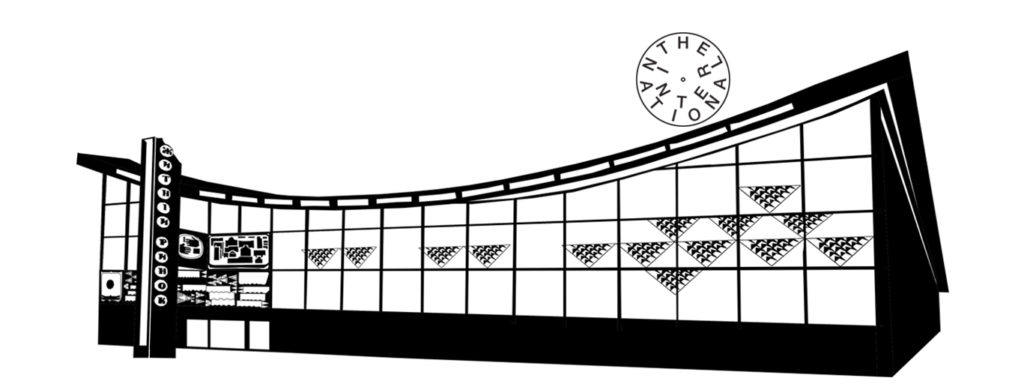
23 – 29 October
On Wednesday, 25 October, at 18:00 the opening of the second segment of the “The Festivities are Cancelled!” exhibition will take place at Pavlo Tychyna Literary-Memorial Museum-Apartment (5 Tereshchenkivska St., ap. 1, 3, metro Teatralna).
The exhibition “The Festivities are Cancelled!” is dedicated to the memory of revolution and the phenomenon of censorship. This exhibition is necessitated not so much by the centennial of the revolutionary events of 1917 – as by the relevance of a conversation about revolutionary impulses, the writing of history, and the formation of collective memory.
During times of crisis, in a society living through war, censorship and self-censorship can seem like the only natural defense mechanisms against aggressors. While a revolutionary gesture asserts the potential for collective polyphonic social creativity, censorship seeks an unambiguous picture of the world, as if created by a single authoritarian entity.
Exhibition Participants: Emanuel Almborg (Sweden), Yana Bachynska, Babi Badalov (France), Yevgenia Belorusets, Davyd Chychkan, Nikita Kadan, Zhanna Kadyrova, Volodymyr Kuznetsov, Lesia Khomenko, Pavel Khailo, Vasyl Lozynski, Larion Lozovoy, Yuri Leiderman, Lada Nakonechna, Deimantas Narkevičius (Lithuania), Vlada Ralko, Oleksandr Ranchukov, Р.Е.П. group, Andriy Sagaydakovsky, Sergey Shabokhin (Belarus), Olia Sosnovskaya, Alexander Ugay (Kazakhstan), Leonid Voytsehov, Yana Volkova, (Belarus), Elena Vogman (Germany), Clemens von Wedemeyer (Germany), Anna Zvyagintseva.
Hours: Monday–Friday, 9:00–17:00, Saturday–Sunday, 10:00–18:00.
The exhibition will take place until November 26.
Enter by museum ticket
On Thursday, October 26, at 19:00 the screening of the film “Arsenal” (1928) by Oleksandr Dovzhenko from the “Ukrainian Revolutionary Cinema Avant-Garde” film series will take place at the Institute of Scientific, Technical and Economic Information (“UFO”, 180 Antonovycha St., metro Lybidska).
Admission is free
On Friday, October 27, at 19:00 the exhibition “Market” will open at Zhytniy Market (16 Verkhniy Val St., metro Kontraktova Ploshcha) with “Cybele,” a new musical project by Anatoly Belov, and a concert featuring George Babanski and Eldar Ganeev.
The buildings of Ukrainian indoor markets, constructed in the 1960s–1980s, are unique monuments to late modernism. However, these structures are not formally recognized by Ukrainian law and are thus vulnerable to devastating renovations. The purpose of the “Market” project is to draw attention to these buildings as newly discovered monuments by exploring the history of their architecture, and by reflecting on the contexts of their creation and existence in the past, present and future. The exhibition will take place at the Kyiv Zhytniy Market, which was constructed in 1980 in the so-called International style.
Participants: Dana Kosmina, Nikita Kadan, Volodymyr Kuznetsov, Ksenia Hnylytska, Oleksandr Burlaka, Oleksiy Bykov, David Chichkan (Ukraine), Sergey Shabokhin (Belarus).
Curator – Hanna Tsyba
Architect – Dana Kosmina
The exhibition will remain open daily, except Monday, during Zhytniy Market working hours – 9:00–19:00.
Admission is free
On Saturday, October 28, 19:00 at the Institute of Scientific, Technical and Economic Information (“UFO”, 180 Antonovycha St., metro Lybidska) there will be a Lecture “Voice and the Traces of Time” by Oksana Bulgakova, film theorist and Professor at Guthenberg University.
Admission is free
On Sunday, October 29, at 19:00 at Institute of Scientific, Technical and Economic Information (“UFO”, 180 Antonovycha St., metro Lybidska) there will be a discussion “Art Censorship and Resistance Experiences in Turkey Under the State of Emergency” with Asena Günal and Özlem Altunok (Turkey). Asena Günal is a co-founder of Siyah Bant, a research platform that documents censorship in the arts in Turkey. Özlem Altunok is a coordinator at Susma, a platform founded in 2016 to monitor cases of censorship and self-censorship, especially in arts and media, and to raise awareness and create a network of solidarity in the face of restrictions on freedom of expression. Altunok is also a content editor at Art Unlimited, a bimonthly journal of contemporary art.
Admission is free
Organized by Visual Culture Research Center (Kyiv, Ukraine).
Institutional Partners: Avtonomi Akadimia (Athens, Greece), BURSA Gallery (Kyiv, Ukraine), Columbia Global Centers | Paris (France), DAAD Artists-in-Berlin Program (Berlin, Germany), De Balie (Amsterdam, the Netherlands), Depo (Istanbul, Turkey), Depot (Vienna, Austria), documenta 14 (Athens/Kassel, Greece/Germany), European Alternatives (Paris, France), Forum Transregionale Studien (Berlin, Germany), Hromadske TV (Kyiv, Ukraine), Institute for Human Sciences (Vienna, Austria), Medusa Books (Kyiv, Ukraine), National Oleksandr Dovzhenko Center (Kyiv, Ukraine), Political Critique (Warsaw, Poland), Shedhalle (Zurich, Switzerland), Studio 14 (Athens, Greece), Transeuropa Festival 2017 (Madrid, Spain), tranzit.cz (Prague, Czech Republic).
Partners: British Council / Delegation of the European Union to Ukraine, Charles Stewart Mott Foundation, ERSTE Foundation, European Cultural Foundation, International Renaissance Foundation, Robert Bosch Foundation.
The opening of The Kyiv International – Kyiv Biennial 2017

The opening of The Kyiv International – Kyiv Biennial 2017 will take place during three days and will include the opening of “The Festivities Are Cancelled!” exhibition and lecture performance by Philip Rizk on Friday, October 20, the opening of the “Dead Souls” exhibition on Saturday, October 21, the screening of the film “Ceremony” by Phil Collins, and a live performance by Pharmakon on Sunday, October 22.
The Kyiv International – Kyiv Biennial 2017 will start on the 20th of October at 19:00 with the opening of the exhibition “The Festivities Are Cancelled!” at the Biennial’s main site, Institute of Scientific, Technical and Economic Information (“UFO”, 180 Antonovycha St., metro Lybidska) along with the lecture performance “TO GO VISITING – an agitka by Philip Rizk” (Egypt) at 20:00 at the same location.
The exhibition “The Festivities are Cancelled!” is dedicated to the memory of revolution and the phenomenon of censorship. This exhibition is necessitated not so much by the centennial of the revolutionary events of 1917 – as by the relevance of a conversation about revolutionary impulses, the writing of history, and the formation of collective memory. Among a wide spectrum of phenomena related to revolution and the formation of memory, the Hudrada curatorial group will focus on the topic of censorship.
Soviet censorship – authoritarian, restrictive and deadly – took the place of revolutionary ideas, using as cover the mission to protect against counterrevolution. Its expansion to all areas of public life meant an end to paradoxical foresight and attempts to freely design a new society. A democratic revolution allows for the most diverse, and sometimes contradictory, ideas and interpretations of the past and present to enter the public space. Its expansion to all areas of public life has meant an end to paradoxical foresight, and attempts to freely design a new society. Censorship – street-level, grassroots and state-sponsored – destroys the public space, making discussion pointless. After all, its goal is not only to eliminate undesirable opinions, but to embed self-censorship as a pre-emptive practice.
Exhibition Participants: Emanuel Almborg (Sweden), Yana Bachynska, Babi Badalov (France), Yevgenia Belorusets, Nikita Kadan, Zhanna Kadyrova, Volodymyr Kuznetsov, Lesia Khomenko, Pavel Khailo, Vasyl Lozynski, Larion Lozovoy, Yuri Leiderman, Lada Nakonechna, Deimantas Narkevičius (Lithuania), Vlada Ralko, Oleksandr Ranchukov, Р.Е.П. group, Andriy Sagaydakovsky, Sergey Shabokhin (Belarus), Olia Sosnovskaya, Alexander Ugay (Kazakhstan), Leonid Voytsehov, Yana Volkova, (Belarus), Elena Vogman (Germany), Clemens von Wedemeyer (Germany), Anna Zvyagintseva.
The second part of “The Festivities Are Cancelled!” exhibition will open on October 25 at the Pavlo Tychyna Literary-Memorial Museum-Apartment.
The exhibition will last October 25–November 26. Hours: Tuesday – Sunday, 12:00 – 20:00. Monday – closed.
On Friday, at 20:00 the lecture performance “TO GO VISITING – an agitka by Philip Rizk” will take place at the “UFO.” Philip Rizk (Egypt) will present his text in the form of diary of the fictional character Aleksandra Berkman (her prototype is a Russian anarchist – Alexandr Berkman, 1870 – 1936) for the first time in Ukraine, the location of some of the historical events it references. In the summer of 2017, Philip Rizk undertook a journey following in the footsteps of Berkman’s fictional travel route along the former Berlin-Baghdad railway line to the Turkish-Syrian border, in the process continuing Berkman’s travelogue.
On Saturday, October 21, at 19:00 the exhibition “Dead Souls” by Marina Naprushkina (Germany) and Oliver Ressler (Austria) will open at Visual Culture Research Center (44 Hlybochytska St., trams #14, #18 from metro Kontraktova Ploshcha).
In the exhibit “Dead Souls” Marina Naprushkina presents a wall painting depicting the enlargement of the borders of the EU as well as key provisions within EU asylum and migration policy. The European Union has been awarded the Nobel Peace Prize for six decades of successful reconciliation policy. But what kind of peace is the EU brokering? The EU’s failed asylum policy often leads to serious economic and social inequalities. Winning over the marketplace in refugees’ countries of origin takes precedence over the free movement of persons. The borders are so sealed, in fact, that asylum seekers are oftentimes hardly able to reach “the safe shore.”
Oliver Ressler focuses on struggles to obtain citizenship while, at the same time, questioning the implicitly exclusionary nature of the concept. “The Right of Passage” film (2013) is partially constructed through a series of interviews with Ariella Azoulay, Antonio Negri and Sandro Mezzadra. The title of the film refers to the stages, or “rites of passage” that mark important transitions on the path to selfhood. The exchange of “rites” with “rights” suggests that freedom of movement must become a right granted to every person – regardless of his or her place of birth. In his “Occupy, Resist, Produce” (2014) film series Ressler investigates the rare cases of occupied factories, which have become a means of workers’ struggle against the closure of a production site or company, or the relocation of production to another country.
The exhibition will last until November 26. Working hours: Tuesday – Sunday, 12:00 – 20:00. Monday – closed.
On Sunday, October 22, at 16:00 the screening and discussion of the film “Ceremony” (2017) by Phil Collins (Germany) will take place at Institute of Scientific, Technical and Economic Information, “UFO.”
In July 2017, the almost 4-meter-high Soviet statue of Friedrich Engels was removed from public view in Maryanivka village (Poltava region) as part of the process of decommunization. Phil Collins, a director and playwright, initiated the relocation of the monument to Manchester and its permanent installation in the city where Friedrich Engels had lived for over 20 years. During the Manchester international festival the crowded opening of the Engels monument took place. The “Ceremony” film by Phil Collins depicts the opening and relocation of the statue to Great Britain.
Admission to the exhibitions and screening is free.
On Sunday, October 22, at 21:00 the live performance by Pharmakon (USA), rising stars in the contemporary experimental music scene, will take place at the Institute of Scientific, Technical, and Economic Information (“UFO”) concert hall – a late modernist masterpiece, built to synthesize acoustic and visual perception in the arts. Admission by ticket.
Organized by Visual Culture Research Center (Kyiv, Ukraine).
Emblem and Biennial Design: Experimental Jetset (Amsterdam, the Netherlands).
Institutional Partners: Avtonomi Akadimia (Athens, Greece), BURSA GALLERY (Kyiv, Ukraine), Columbia Global Centers | Paris (France), DAAD Artists-in-Berlin Program (Berlin, Germany), De Balie (Amsterdam, the Netherlands), Depo (Istanbul, Turkey), Depot (Vienna, Austria), documenta 14 (Athens/Kassel, Greece/Germany), European Alternatives (Paris, France), Forum Transregionale Studien (Berlin, Germany), Hromadske TV (Kyiv, Ukraine), Institute for Human Sciences (Vienna, Austria), Medusa Books (Kyiv, Ukraine), National Oleksandr Dovzhenko Center (Kyiv, Ukraine), Political Critique (Warsaw, Poland), Shedhalle (Zurich, Switzerland), Studio 14 (Athens, Greece), Transeuropa Festival 2017 (Madrid, Spain), tranzit.cz (Prague, Czech Republic).
Partners: British Council / Delegation of the European Union to Ukraine, Charles Stewart Mott Foundation, ERSTE Foundation, European Cultural Foundation, International Renaissance Foundation, Robert Bosch Foundation.
The Kyiv International – Kyiv Biennial 2017

Visual Culture Research Center announces the new edition of the Kyiv Biennial – The Kyiv International 2017 that will take place October 20 – November 26, 2017.
The Kyiv International – Kyiv Biennial 2017 project aims to explore and reveal the emancipatory potential of the idea of the political International, which emerged in Europe. Today, in the age of structural crisis of global institutions — when the maintenance of a transnational status quo is constructed from violated borders, peripheral wars, and the emergence of new walls and conflicts — the idea of cross-border unity and international solidarity is of utmost urgency for the future survival of Europe.
Ukraine and the countries of the European Union share a great number of challenges and threats today. Ukraine has recently weathered several powerful new experiences: enthusiasm and disappointment at the Maidan revolution, the shock of war, ongoing infractions to established territorial parameters and protection mechanisms, and the mass displacement of people, whilst the EU has experienced increasing flows of refugees, the shrinking of its territory after Brexit, and the rise of far-right populism, becoming a battlefield for new forms of terrorism. The absence of ready-made patterns for dealing with these experiences, discontent with preexisting structures, along with a strong desire and urgent need for change, provide a conduit for an intense intellectual and creative search for the new.
We are confronted with the most pressing questions of our time by the ongoing war conflicts in Eastern Europe and the Middle East: how to maintain safe, sustainable, free societies when both the state and international mechanisms to do so are currently proving ineffective? What forms could a new and efficient international solidarity take? What kinds of sensibilities, conceptual structures, and pathways for thinking and imagining should we develop? What might the basis for the new International become, and who are its subjects?
The Kyiv International − Kyiv Biennial 2017 will take place in the format of an international forum for art and knowledge, integrating art projects with a number of institutional collaborations to create agoras for debate. Lectures, panel discussions, seminars, and workshops led by well-known historians, philosophers, economists, and practitioners in the cultural sector will converge upon artistic and intellectual pursuits for critical answers to common concerns, while a number of exhibitions will lend an alternative optics to urgent contemporary issues through the medium of the visual arts. A program of free thematic public events will also address the political, social, economic, and historical circumstances in today’s Ukraine and Europe, as well as on a global scale.
The Kyiv International − Kyiv Biennial 2017 will explore different historical forms and contemporary examples of Internationals that took place in the arts, culture, and educational spheres by investigating their methodological and communicative approaches together with their ability to imagine and create new political formats. Major emphasis will be put on the aesthetic and political relevance of modernism today, which carries a high degree of latent potential for thinking and inventing alternative societal projects critically needed worldwide at this moment. Originating in Europe, modernism spread around the globe throughout the 20th century, demonstrating the capability of being local and global at the same time, while still preserving its national particularities, along with the development of its international universality. As an unfinished project open to the future, the modernist heritage within contemporary cultural and political practices can indicate a possible exit strategy from the political deadlock of economic crisis, nationalist populisms, and war.
The Kyiv International − Kyiv Biennial 2017 is meant to function as a translation machine in a political sense – a vehicle by which to transmit local social practices and political experiences internationally, thereby constructing common tools to work with and build upon. An international political language that can define our new lexicon, map the affects that drive us, and let us express ourselves relevantly while constituting our shared points of interest, remains one of the key issues at stake today. Common European space requires a common European vocabulary to provide a basis and a platform for understanding our varied experiences, and to reflect upon possible solutions to our political problems, without hiding social reality. The Kyiv International biennial, as a laboratory of political translation, contributes in this manner to the development of a newly emerging collective subjectivity grounded in democratic internationalism.
Developing out of the structures and institutional strategies of The School of Kyiv − Kyiv Biennial 2015, The Kyiv International 2017 aims to establish collaborations between civil society organizations, cultural centers, art institutions, and academia on an international basis. Realizing the biennial format as a multi-institutional political framework on an international scale, The Kyiv International − Kyiv Biennial 2017 will model an institutional International, creating sustainable networks for collaboration and a space for solidarity and support that is sorely missing in the field of politics today.
Locations:
Main Site: Institute of Scientific, Technical and Economic Information (“UFO”, 180 Antonovycha St., metro Lybidska).
Visual Culture Research Center (44 Hlybochytska St., trams #14, #18 from metro Kontraktova Ploshcha).
Zhytniy Market (16 Verkhniy Val St., metro Kontraktova Ploshcha).
BURSA GALLERY (11-B Kostyantynivska St., metro Kontraktova Ploshcha).
Pavlo Tychyna Literary-Memorial Museum-Apartment (5 Tereshchenkivska St., ap. 1, 3, metro Teatralna).
Artists’ Studios at 33 Soshenko (33 Soshenko St., trolley bus #18 from metro Maidan Nezalezhnosti).
Organized by Visual Culture Research Center (Kyiv, Ukraine).
Emblem and biennial design: Experimental Jetset (Amsterdam, the Netherlands).
Institutional Partners: Avtonomi Akadimia (Athens, Greece), BURSA GALLERY (Kyiv, Ukraine), Columbia Global Centers | Paris (France), DAAD Artists-in-Berlin Program (Berlin, Germany), De Balie (Amsterdam, the Netherlands), Depo (Istanbul, Turkey), Depot (Vienna, Austria), documenta 14 (Athens/Kassel, Greece/Germany), European Alternatives (Paris, France), Forum Transregionale Studien (Berlin, Germany), Hromadske TV (Kyiv, Ukraine), Institute for Human Sciences (Vienna, Austria), Medusa Books (Kyiv, Ukraine), National Oleksandr Dovzhenko Center (Kyiv, Ukraine), Political Critique (Warsaw, Poland), Shedhalle (Zurich, Switzerland), Studio 14 (Athens, Greece), Transeuropa Festival 2017 (Madrid, Spain), tranzit.cz (Prague, Czech Republic).
Partners: British Council / Delegation of the European Union to Ukraine, Charles Stewart Mott Foundation, ERSTE Foundation, European Cultural Foundation, International Renaissance Foundation, Robert Bosch Foundation.
Curatorial tour and closing of GRAY CUBE exhibition
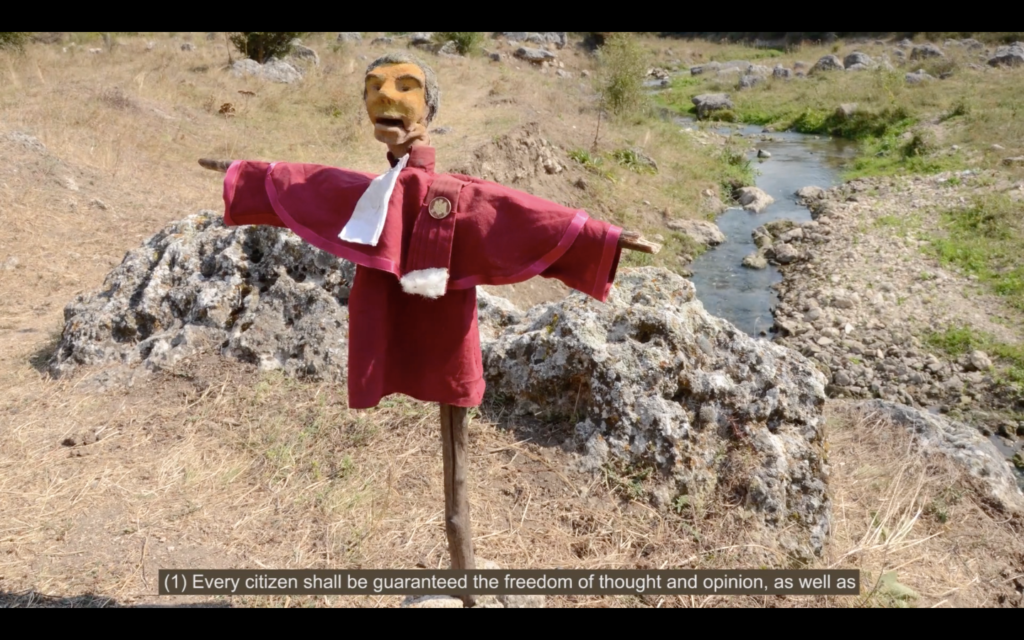
Ghenadie Popescu. The Ciorna River (2016)
Sunday, 8 October 2017, 17:00
The curator Kateryna Mishchenko will give a guided tour around Gray Cube exhibition at 17:00 (in English) and at 18:00 (in Ukrainian). The tour will be followed by a meeting with the artist Ghenadie Popescu (Moldova).
Exhibition Gray Cube focuses on the phenomenon of corruption, which is usually associated with political or sociological issues and has artistic potential. Paraphrasing, obscuring, allusions, creating secret sign systems – these forms of corrupt behavior can be perceived as artistic techniques that add fiction to the present, transforming the everyday into an absurd adventure. Placing themselves within a gray democracy and gray economy, artists examine the way the logic of corruption interweaves the social fabric. They make its anthropological, historical and aesthetic dimensions visible.
Curated by Kateryna Mishchenko
Participants: Oleksandr Burlaka, Leon Kahane, Dana Kosmina, Stanislav Menzelevsky, Anna Onufrienko, Ghenadie Popescu, Oleksiy Radynski, Hito Steyerl, Oleksandr Teliuk.
Exhibition display by Dana Kosmina
Open hours: Tuesday–Sunday, 14:00–20:00. Monday – closed.
Admission is free
Exhibition takes place within the “Bestehend” project which is a collaboration between Goethe-Institut Ukraine and Federal Agency for Civic Education and is supported by the Federal Foreign Office
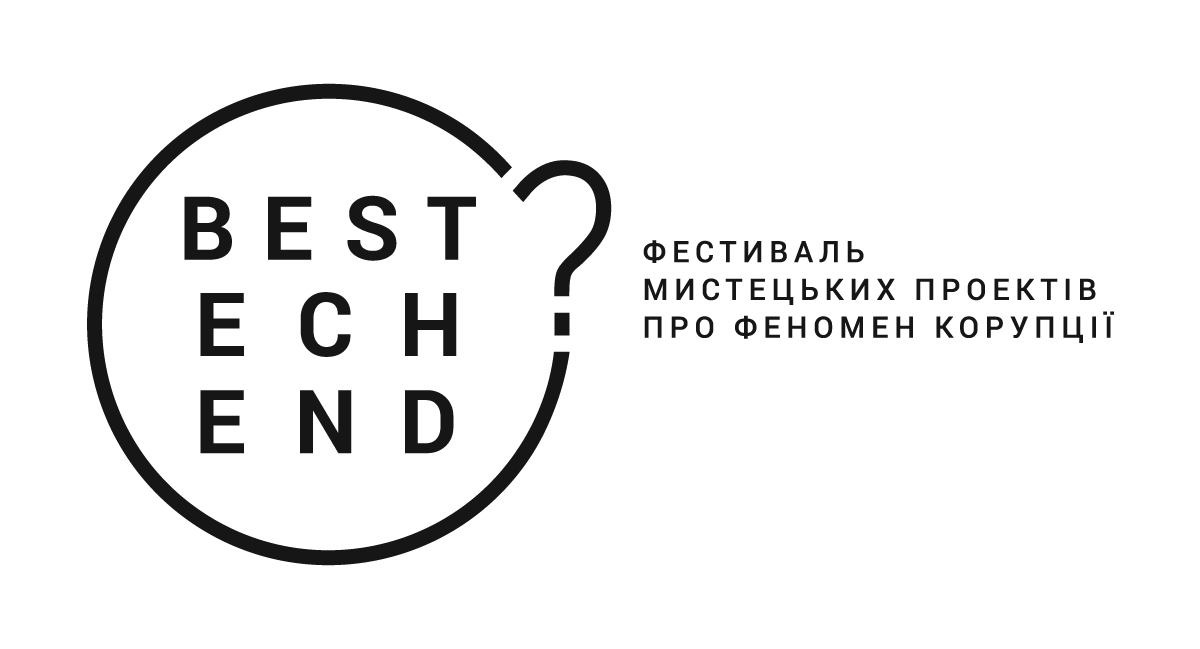


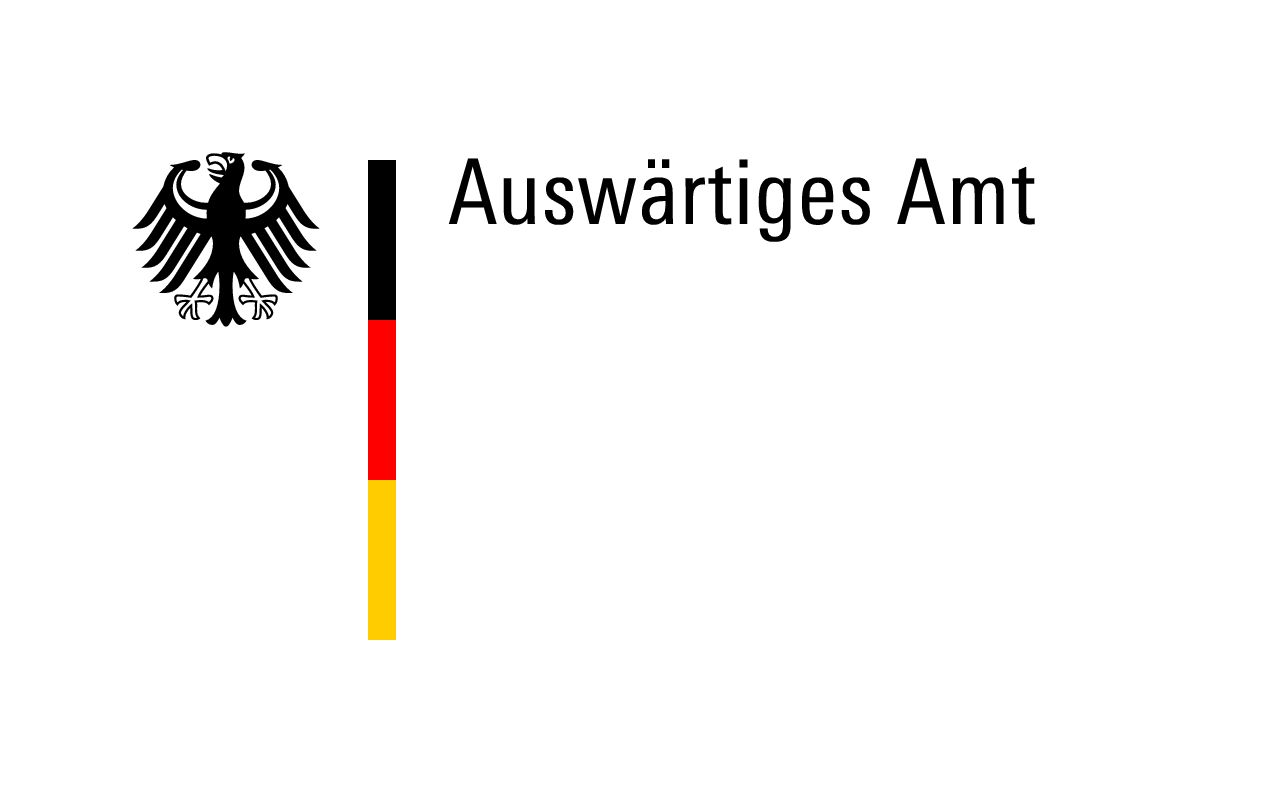
Supported by ERSTE Stiftung and Charles Stewart Mott Foundation
Media partner — Hromadske.UA
![]()
Taras Fedirko. Transparency: The Cybernetic Utopia of Anti-Corruption
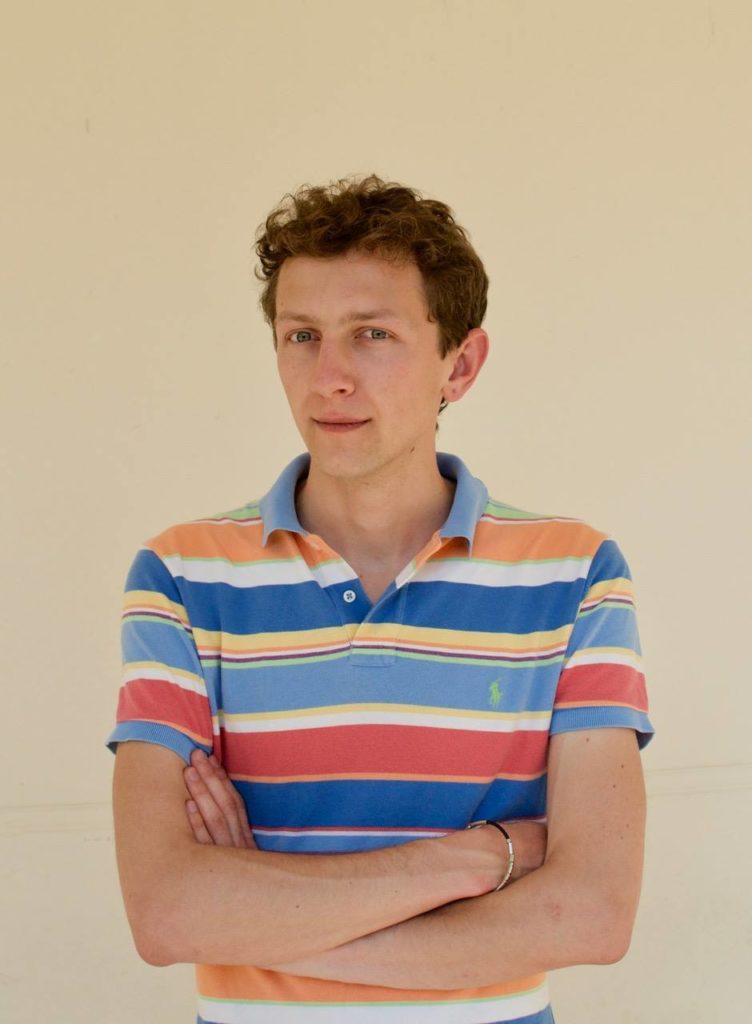 П’ятниця, 29 вересня, 19:00
П’ятниця, 29 вересня, 19:00
Friday, 29 September 2017, 19:00
The lecture by Taras Fedirko will take place within the framework of Gray Cube exhibition.
Since the beginning of the 1990s, a struggle with corruption has become part of the numerous programs of international development, subject of global civil society campaigns, as well as the condition for international assistance. According to the anthropologist Steven Sampson, the whole “industry of anti-corruption” has grown since that time, and its “warriors of virtue” have chosen transparency as their main weapon. Why? How exactly do anti-corruption activists, officials, international organizations’ employees and donors recognize corruption, built strategies of fighting it, and why do they treat transparency as a key to political and economic development? To put it differently, it is important to understand how corruption and transparency are turning into “global abstractions” in the context of particular organizations’ operations.
In his lecture, Taras Fedirko will explore the establishment and development of the Extractive Industries Transparency Initiative, the history of which will help to understand the role of global abstractions in the emergence of the international anti-corruption industry. The analysis of this case will help to develop a critique of anti-corruption knowledge – concepts and theories of political corruption mechanisms and transformative potential of transparency that have become the basis for turning the abovementioned Initiative into the global model of anti-corruption policy, applied in 50 countries, including Ukraine.
Taras Fedirko is a political anthropologist, a fellow researcher at the Social Anthropology Department at the University of Cambridge. He did his ethnographic research in one of the British government departments and among anti-corruption civil organizations in London. At the moment, Fedirko is working on the book about the transformation of governmental structures and practices in Great Britain under the influence of international anti-corruption organizations’ and corporations’ lobby. In Kyiv, he is working on his next research on the practices and concepts of free speech in Ukrainian journalism.
Exhibition Gray Cube focuses on the phenomenon of corruption, which is usually associated with political or sociological issues and has artistic potential. Paraphrasing, obscuring, allusions, creating secret sign systems – these forms of corrupt behavior can be perceived as artistic techniques that add fiction to the present, transforming the everyday into an absurd adventure. Placing themselves within a gray democracy and gray economy, artists examine the way the logic of corruption interweaves the social fabric. They make its anthropological, historical and aesthetic dimensions visible.
Curated by Kateryna Mishchenko
Participants: Oleksandr Burlaka, Leon Kahane, Dana Kosmina, Stanislav Menzelevsky, Anna Onufrienko, Ghenadie Popescu, Oleksiy Radynski, Hito Steyerl, Oleksandr Teliuk.
Exhibition display by Dana Kosmina
Open hours: Tuesday–Sunday, 14:00–20:00. Monday – closed.
Admission is free
Exhibition takes place within the “Bestehend” project which is a collaboration between Goethe-Institut Ukraine and Federal Agency for Civic Education and is supported by the Federal Foreign Office




Supported by ERSTE Stiftung and Charles Stewart Mott Foundation
Media partner — Hromadske.UA
![]()
Lectures and discussion within the framework of GRAY CUBE exhibition
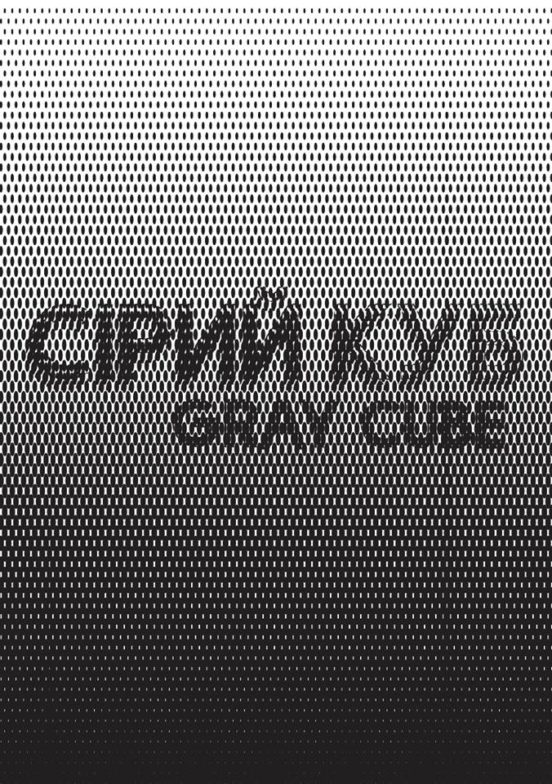
23 September, 19:00. Oleksandr Morozov. Cut & Kickback. Corruption in the Rhetoric of the Officials and Civil Movements in Post-Soviet Countries.
In personalistic regimes, as well as in “weak democracy” regimes, struggling with corruption turns into a never-ending and notorious policy. Opposition and government compete in the development of anti-corruption campaigns. This contest expresses itself in the language and three discourses emerge: disciplinary – on the part of the power, moralistic – on the part of the society, and institutional – on the part of the opposition which rests on the language of “normative democracy.” At the same time, corruptive practices have their own language of allusions and euphemisms. How do these languages coexist in the society? The lecturer will present five remarks on the “philology of corruption and anti-corruption.”
Oleksandr Morozov is a political analyst, a teacher at the Ruhr-University Bochum, Germany (2014–15), contributor to Deutsche Welle (2015–16), co-organizer of the Centre for Russian Studies at the Charles University, Prague, Czech Republic.
24 September, 17:00. Zakhar Popovych. From the Soviet Informal Economy to Today’s Systematic Corruption.
The lecturer will answer such questions: Why did the restoration of capitalism in the USSR and the People’s Republic of China follow such different trajectories? What was so specific about the business of the Soviet gray bourgeoisie? How and when did the Ukrainian offshore business model and systemic corruption begin to emerge? Should we focus mainly on corruption, or, more generally, on a socio-economic system which includes the tax liberation of big business, unlimited withdrawal of capital, and effective system of countering foreign investments in Ukraine?
Zakhar Popovych is a Ph.D. in Economics, deputy director of the Center for Social and Labor Research (Kyiv), researcher of the Soviet bureaucracy.
24 September, 18:00. Lecture by Yuliia Yurchenko Corruption and Law in Post-Soviet Ukraine followed by a discussion.
Corruption in Ukraine expresses itself in various forms: it is a mechanism for capital accumulation, a form of economic protectionism, and an integral part of neo-liberalism. In the 1990s, informal relations and transactions were vitally important. They arose from the existing relations between the state administrative apparatus, the rudiments of the capitalist class and the security agencies, and eventually turned into legalized forms – such as non-payment and tax evasion, systemic nepotism in privatization processes, etc. The lecturer will question corruption as a phenomenon and as a concept, as well as explain the connection between corruption and neo-liberal reforms in the Ukrainian context.
Yuliia Yurchenko is a Ph. D. in Political Economy, a researcher at Greenwich University, UK. She specializes in the political economy of Ukraine in the post-Soviet period, regulation of international trade, international lobbying, capital accumulation and EU renewable energy policies.
Exhibition Gray Cube focuses on the phenomenon of corruption, which is usually associated with political or sociological issues and has artistic potential. Paraphrasing, obscuring, allusions, creating secret sign systems – these forms of corrupt behavior can be perceived as artistic techniques that add fiction to the present, transforming the everyday into an absurd adventure. Placing themselves within a gray democracy and gray economy, artists examine the way the logic of corruption interweaves the social fabric. They make its anthropological, historical and aesthetic dimensions visible.
Curator – Kateryna Mishchenko
Participants: Oleksandr Burlaka, Leon Kahane, Dana Kosmina, Stanislav Menzelevsky, Anna Onufrienko, Ghenadie Popescu, Oleksiy Radynski, Hito Steyerl, Oleksandr Teliuk.
Exhibition display by Dana Kosmina
Open hours: Tuesday–Sunday, 14:00–20:00. Monday – closed.
Admission is free
Exhibition takes place within the “Bestehend” project which is a collaboration between Goethe-Institut Ukraine and Federal Agency for Civic Education and is supported by the Federal Foreign Office




Supported by ERSTE Stiftung and Charles Stewart Mott Foundation
Media partner — Hromadske.UA
![]()
Nomadic School for Visual Education, an educational program on contemporary art for pupils
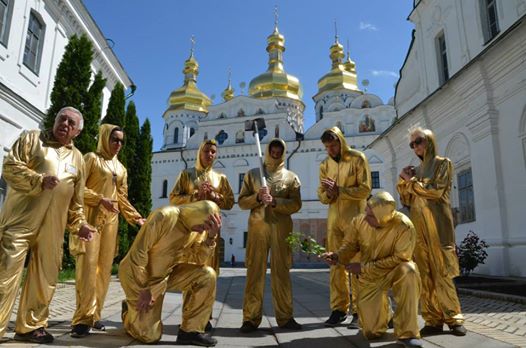
Paweł Althamer. Common Task (Kyiv, 2015)
18 September – 10 December 2017
Visual Culture Research Center launches the Nomadic School for Visual Education – educational program on contemporary art for pupils.
On September 18, 2017, the first experimental course on contemporary art for 7th-grade pupils started in Mariupol at the Secondary School-Lyceum of Information Technologies # 69. During the course, the nine contemporary Ukrainian artists will familiarize pupils with the strategies and problematic of contemporary art, as well as teach to analyze artworks and visual images.
Within the program, the pupils will acquire the skills of understanding the visual image and artistic expression. At the lessons, pupils will learn who Marcel Duchamp and Joseph Beuys are, what installation, performance, social sculpture, and ready-made are, as well as why the mistakes can be more valuable than the right answers. Practical classes with the artists, development and creation of common projects in different artistic media will be part of the program, too.
Understanding of art always requires going beyond the limits of the established mental structures. That is why efforts aimed at the image perception facilitate the development of social skills – openness to a different viewpoint, willingness to overcome your own stereotypes and prejudice, and critical thinking. Through the interaction with artists, pupils will learn to understand art as a means of communication and mutual understanding, as a tool for self-reflection and comprehension of the surrounding reality, as well as the possibility of its transformation.
Among the teachers: Zhanna Kadyrova, Alevtyna Kakhidze, Borys Kashapov, Oksana Kazmina, Lesia Khomenko, Maria Kulikovska, Sasha Protiah, Yevhen Samborskyi, and Maria Vorotilina.
Curator – Lesia Kulchynska
Coordinator – Ruslana Koziienko
Organizer – Visual Culture Research Center, Kyiv
Partner – Platform “Тю!”, Mariupol
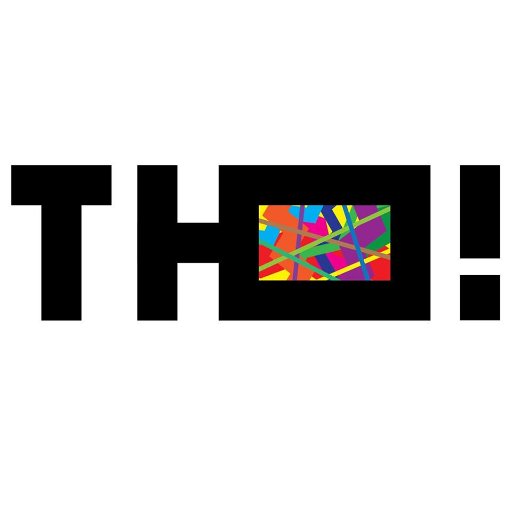
The project is supported by International Rennaissance Foundation within the Cultural Diplomacy for Dialogue contest:
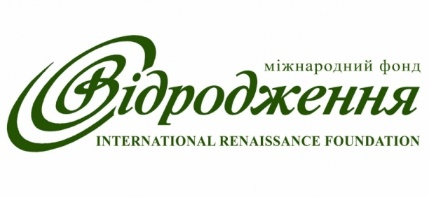
Supported by ERSTE Stiftung and Charles Stewart Mott Foundation
Exhibition GRAY CUBE. Art on corruption

8 September–8 October 2017
Exhibition
GRAY CUBE
Art on corruption
Opening on Friday, September 8, at 19:00.
The phenomenon of corruption, which is usually associated with political or sociological issues, has artistic potential. Paraphrasing, obscuring, allusions, creating secret sign systems – these forms of corrupt behavior can be perceived as artistic techniques that add fiction to the present, transforming the every day into an absurd adventure. Placing themselves within a gray democracy and gray economy, artists examine the way the logic of corruption interweaves the social fabric. They make its anthropological, historical and aesthetic dimensions visible.
Gray Cube, the result of the transformation of the gallery’s “white cube”, represents, among other things, an artistic focus on gray zones of the post-soviet context, often defined by corruption and lack of transparency. However, this characterization itself becomes a subject of critical consideration. At the same time, in the Gray Cube corruption is regarded as a structural part of contemporary economies.
A series of public events on the economic history of Ukraine, as well as on the cultural analysis of anti-corruption policies and rhetoric in post-Soviet countries, will take place within the framework of the exhibition.
Gray Cube will also open in Mariupol (Platform “ТЮ!”, 16 September), Kharkiv (Kharkiv School of Architecture, 6 October), and Chisinau (Bunker Gallery, 17 October).
Curator – Kateryna Mishchenko
Participants: Oleksandr Burlaka, Leon Kahane, Dana Kosmina, Stanislav Menzelevsky, Anna Onufrienko, Ghenadie Popescu, Oleksiy Radynski, Hito Steyerl, Oleksandr Teliuk.
Exhibition display by Dana Kosmina
Open hours: Tuesday–Sunday, 14:00–20:00. Monday – closed.
Admission is free
Exhibition takes place within the “Bestehend” project which is a collaboration between Goethe-Institut Ukraine and Federal Agency for Civic Education and is supported by the Federal Foreign Office




Supported by ERSTE Stiftung and Charles Stewart Mott Foundation
Media partner — Hromadske.UA
![]()
Biblioteq Mdulair & Synkie. Experimental music concert
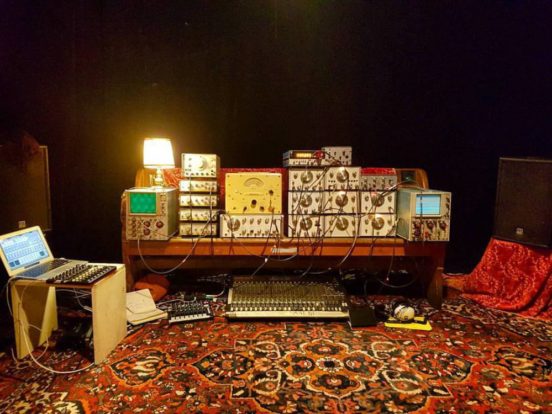
Sunday, 10 September 2017, 19:00
Biblioteq Mdulair is an orchestra made of some 15 analogue function generators for four hands played by Emma Souharce and Daniel Maszkowicz. With its oscilloscopes, sinusoidals, and frequency sweeps, Biblioteq Mdulair is a sound installation producing all kind of waveforms, exploring vibrations, tickling resonances, and creating breathing beats. Those primitive electronics machines bring the sound space down to a magma of waves for a dizzying acoustactile experience.
The Synkie is a modular open source analog video processor, developed by Michael Egger, Flo Kaufmann and Max Egger. Like the venerable modular Moog synthesizer it lets you toy around with the signal using patch cables – but this time not producing sound but images. It is an instrument for video, a playground, a platform to explore new ways to transform a video signal.
The public that will enter this intense and fascinating laboratory for sensorial experimentations will be brought down to various atmospheres, from a soft stroll to an earthquake.
Admission is free
Supported by Pro Helvetia, ERSTE Stiftung and Charles Stewart Mott Foundation:

